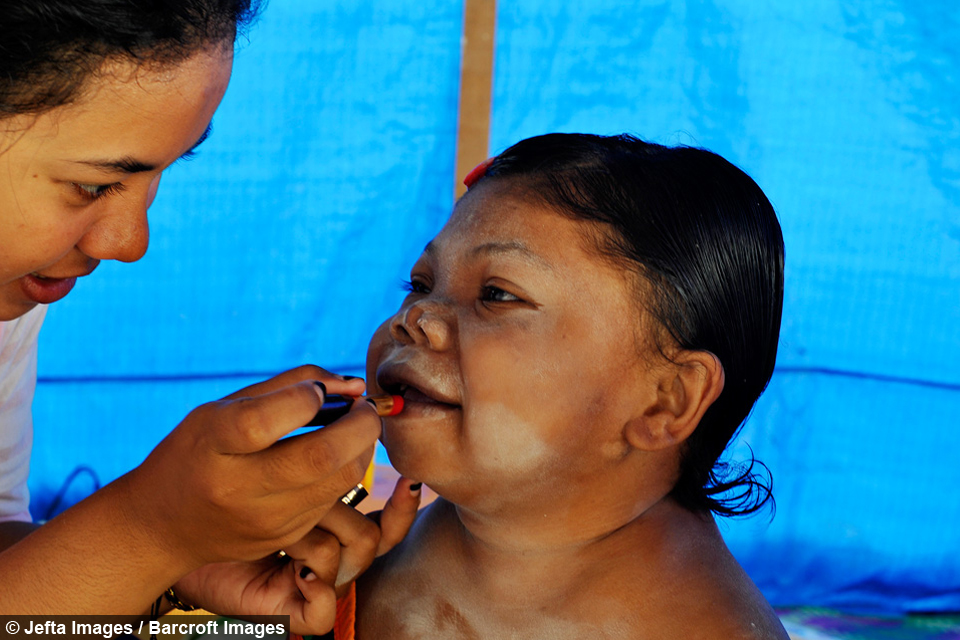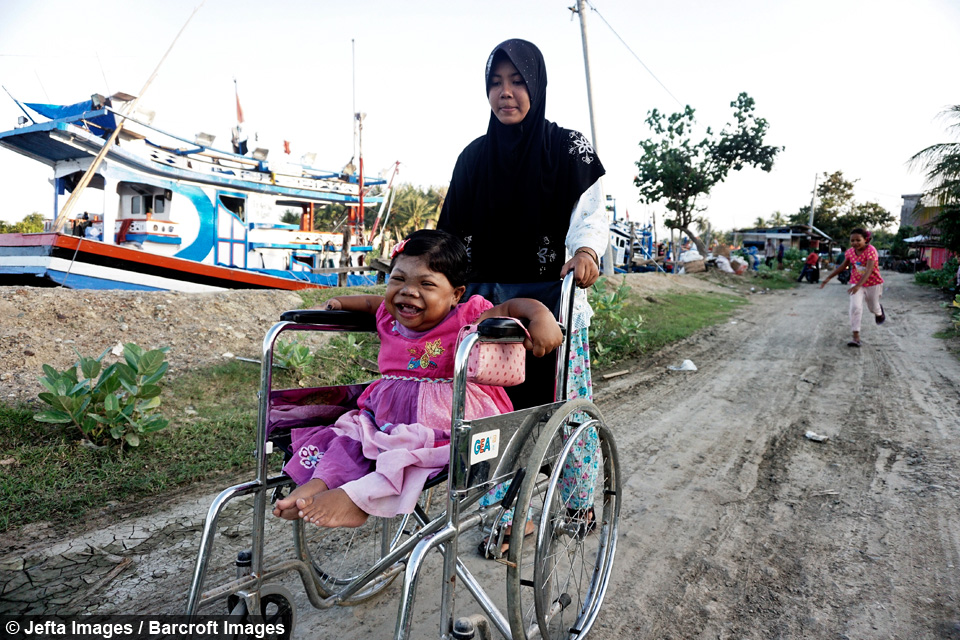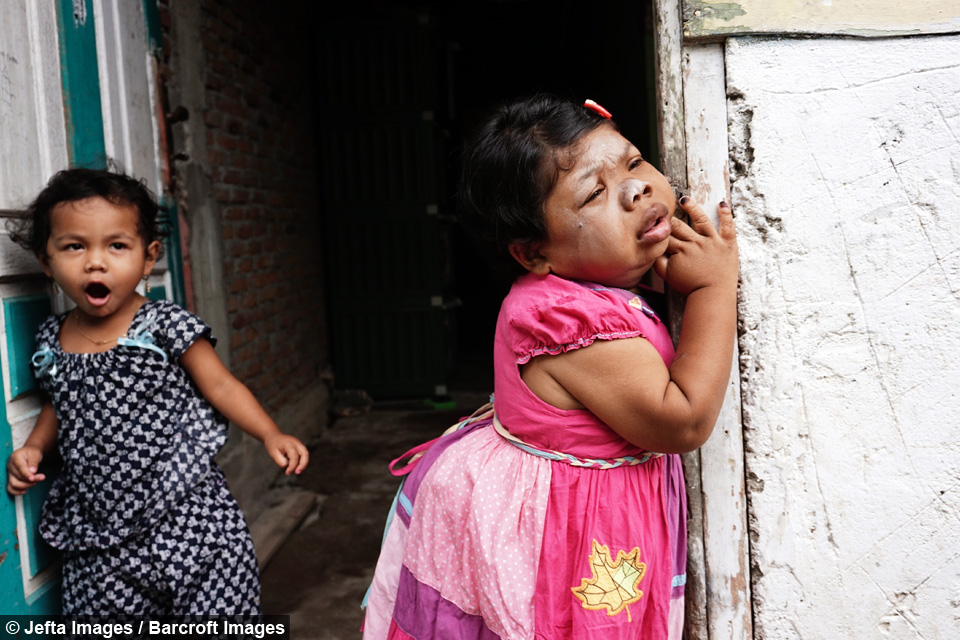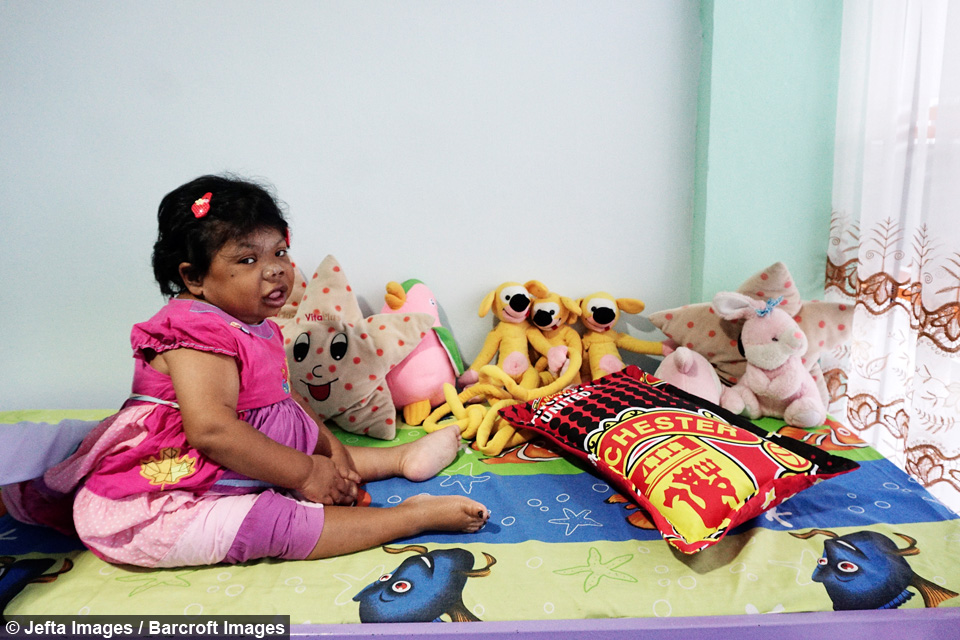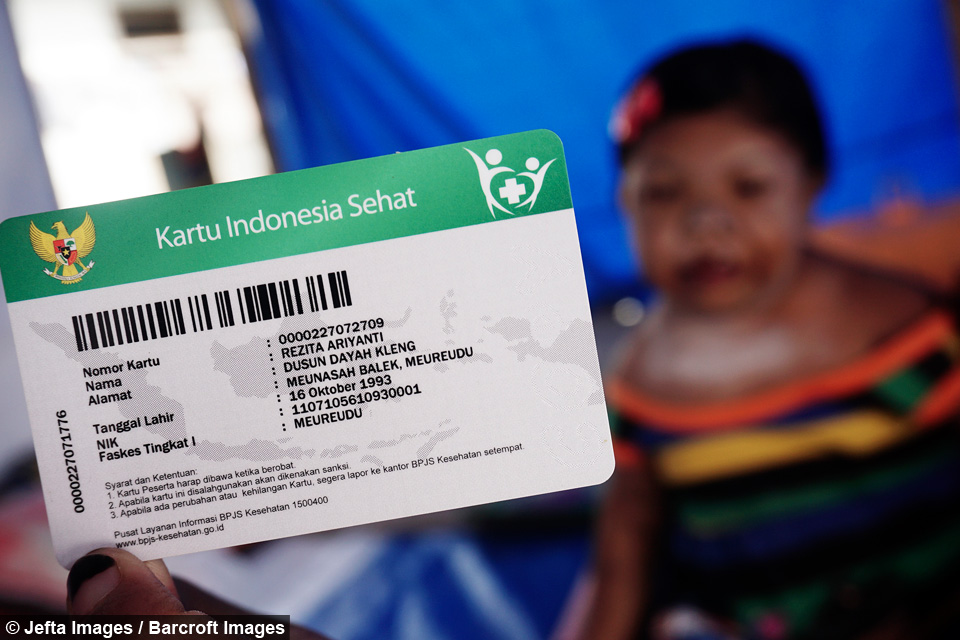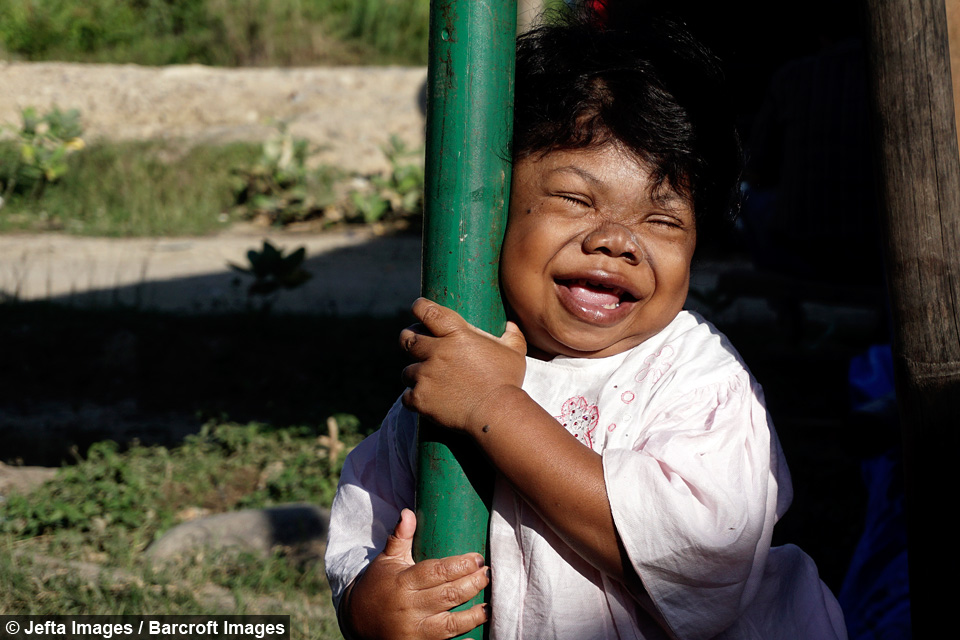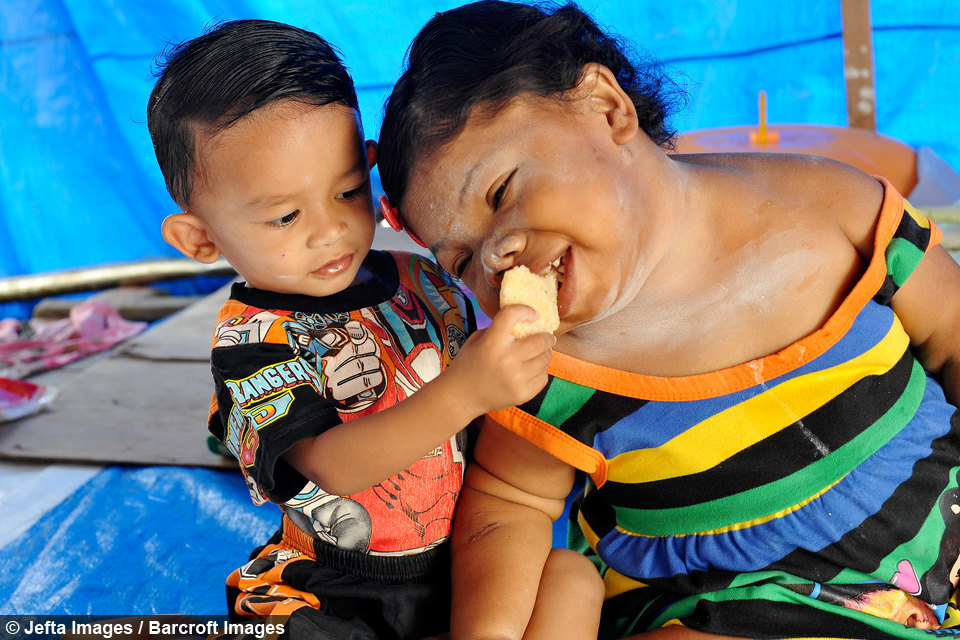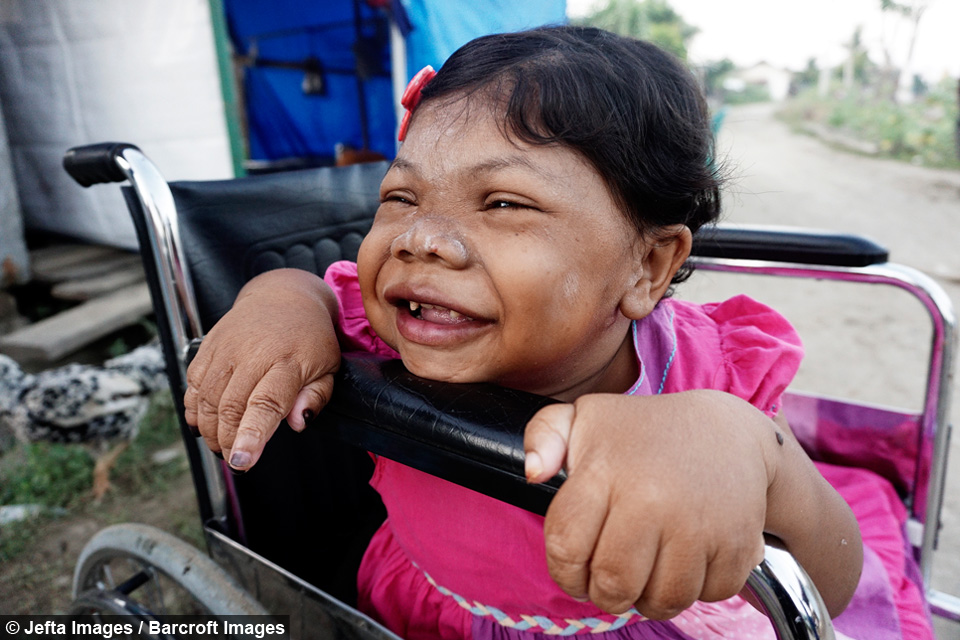The 24-Year-Old who looks like a toddler
By Nathalie Bonney @nathaliebonney
Scroll down for the full story
Videographer / Director: Jefri Tarigan
Producer: Nathalie Bonney, Ruby Coote
Editor: Ian Phillips
Born on 16 October 1993, Sari is unable to walk and has to rely on her relatives to push her around in a wheelchair. Sari also struggles to communicate verbally other than a few simple words and sounds.
Sari’s mother didn’t even realise her daughter suffered from any kind of medical condition until she was two-years-old.
The second of five children, Sari lives with her mum, Suryani H Suud and sister Lela in Didie Jaya District, Indonesia.
Suryani said: “When she was a child, she was a beautiful girl; she didn’t look disabled.
“But at two-years-old she still wasn’t able to do anything. She couldn’t talk or walk.
“I feel very sad. I see my first and third children and they are healthy but Sari is different. I was deeply shocked but thanks to God, Sari has siblings who love and take care of her.
“People would stare at us and others would ask ‘why can’t she walk and why is she so short?’'
“When Sari was a baby, I used to take her to the market, and someone asked why does my first child and Sari look so different. I was sad, so I couldn’t answer it.”
In spite of her childlike appearance, Sari menstruates every month and, in a hint towards her age, also asks her mother for lipstick and toiletries.
Suryani said: “When she saw us use talcum powder, lipstick and hand and body lotion, she asked for them.
“When she talks, it’s like baby speak, it’s not fluent. Nobody understands what she says, but I understand.”
Unable to afford much medical treatment when Sari was a child, Suryanai wasn’t able to get assistance or a more concrete diagnosis for her daughter until Sari was 13-years-old.
Suryani said: “At that time, we still had little money and no one proposed us to see a doctor. In addition, no one knew what the ailment was.
“Doctors said Sari had a hormone deficiency because they didn’t know exactly what had happened.
"They recommended physiotherapy to help her move and walk.”
The medical team at Ibnu Sina Hospital in Sigli City diagnosed Sari with a hormonal growth disorder and think the most likely diagnosis is Turner Syndrome, a genetic disorder that affects one in 2000-2500 babies – and only occurs in girls.
Effects include stunted growth and underdeveloped reproductive organs.
While there is no cure, if treated early on the condition can be suitably managed, allowing sufferers to lead a relatively normal life. Tragically because doctors didn’t see Sari until she was already a teenager, it is that much harder to treat her now.
Doctor Suriadi Umar, Sp. A at Ibnu Sina Hospital, said Sari’s delayed diagnosis could have also contributed to further developmental delays.
“Because of Sari’s hormonal abnormalities, it is possible it affected the motor gland and can make her slower. Because we didn’t see Sari until she was a teenager, the muscles didn’t respond quickly. If we had seen her at the age of six months we could have immediately consulted the parents on Sari’s condition.
“God willing, now we know the core disease, we will see sari slowly move through treatment and physiotherapy.”
Sari receives physio once a week and is still wheelchair bound although her mother hopes that one day her adult daughter will be able to take her first steps.
She said: “She could walk, a doctor has said it could happen one day if she has the right therapy.”
